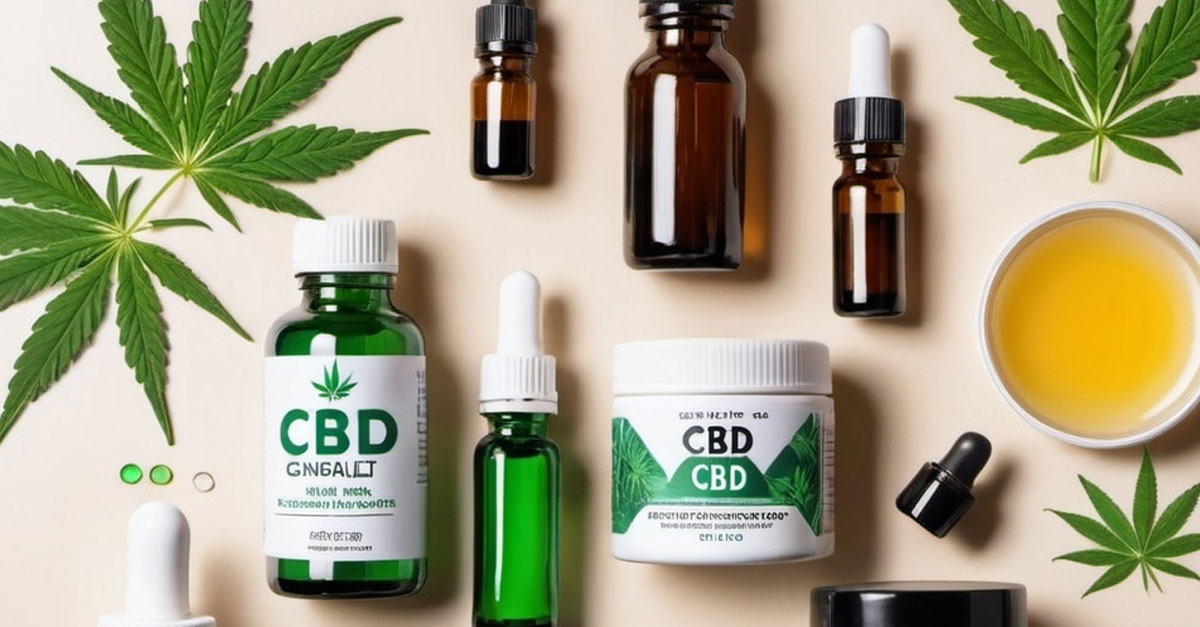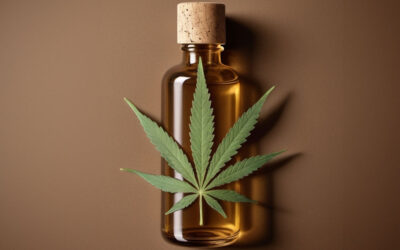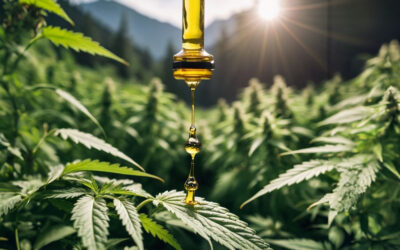CBD 101: Properties, Production, and Potential

CBD 101: Properties, Production, and Potential
CBD has rapidly evolved from a little-known compound to a household term. But while it has become a ubiquitous term, many remain unclear on what cannabidiol actually is. In this blog, Green Core Specialty Insurance demystifies CBD. We will look at its properties, production, and potential.
What is Cannabidiol?
Cannabidiol (CBD) is an abundant cannabinoid found in hemp plants. Known for not producing the buzz or high that THC does, this federally legal compound is touted for a myriad of benefits.
CBD was first isolated from the cannabis plant in 1940 but not fully understood until 1963 when Raphael Mechoulam elucidated it. Interest in CBD grew in the 2000s as more studies revealed its potential benefits, but it wasn’t until the 2018 U.S. Farm Bill legalized hemp production that CBD became widely available. The bill sparked a boom in CBD products, making it a household term.
The Difference Between CBD and THC
“CBD medication is not the same thing as medical marijuana.” – American Epilepsy Society.
CBD and THC, both derived from cannabis plants, share similarities but have distinct characteristics that set them apart. While both compounds offer potential benefits, their distinct properties mean they may be suited for different uses and individuals.
Effects and Legality
THC is psychoactive, responsible for the “high” associated with cannabis use, while CBD doesn’t produce intoxicating effects. This difference in psychoactivity influences their legal status as well. In the United States, CBD extracted from hemp (containing less than 0.3% THC) is federally legal, whereas THC remains illegal at the federal level.
Pharmacology
Their interaction with the body’s endocannabinoid system also differs. THC binds directly to cannabinoid receptors, particularly CB1 receptors in the brain, leading to its psychoactive effects. CBD, on the other hand, works more indirectly, influencing the endocannabinoid system without directly binding to these receptors.
This difference contributes to their distinct side effect profiles. THC can sometimes cause anxiety or paranoia in users, while CBD generally has milder side effects, though it may cause fatigue or changes in appetite in some individuals.
Medical Uses
THC is often used for managing pain, reducing nausea, and stimulating appetite, particularly in conditions like cancer or HIV/AIDS. CBD, however, is being studied for a broader range of potential benefits, including anxiety reduction, epilepsy treatment, and anti-inflammatory effects.
The FDA has approved a CBD-based medication for certain types of epilepsy, while synthetic THC has been approved for specific uses like chemotherapy-induced nausea.
Production
CBD production begins with growing hemp plants, which are varieties of cannabis bred to contain high levels of CBD and low levels of THC. After harvest, the CBD must be extracted from the plant material. There are several methods for this:
- CO2 extraction: This method uses pressurized carbon dioxide to pull CBD from the plant. It’s considered one of the cleanest and most efficient methods.
- Solvent extraction: This involves using solvents like ethanol or butane to strip CBD from the plant. It’s effective but can leave trace amounts of solvents in the final product.
- Oil extraction: This method uses carrier oils like olive oil to extract CBD. It’s safe and inexpensive but less efficient for large-scale production.
Once extracted, the CBD oil is processed to remove any remaining plant materials or unwanted compounds. This raw CBD is often mixed with carrier oils or other ingredients to create various products from tinctures and pills to edibles and vape liquids.
The production and sale of CBD products are regulated to varying degrees depending on local laws. Reputable manufacturers typically provide third-party lab testing results to verify the CBD content and purity of their products.
The Studied Benefits of CBD
Pain Relief
Studies suggest CBD may help reduce chronic pain by affecting endocannabinoid receptor activity and interacting with neurotransmitters.
Anxiety Reduction
Research such as this publication indicates CBD may have anti-anxiety effects, potentially helping conditions like generalized anxiety disorder, social anxiety, and PTSD.
Sleep improvement
Some studies show CBD may help with both falling asleep and staying asleep, particularly for people with anxiety-related sleep issues.
Epilepsy treatment
In 2018, the FDA approved a pharmaceutical-grade oral CBD solution (Epidiolex) for the treatment of certain epileptic seizures.
“The results of scientific studies obtained so far the use of CBD in clinical applications could represent hope for patients who are resistant to all conventional anti-epileptic drugs.” -2019 study by the IRCCS Neurology Center in Italy
Neuroprotective properties
Studies suggest CBD may have benefits for people with neurological disorders like multiple sclerosis and Parkinson’s disease.
Heart health
Some research indicates CBD may help lower high blood pressure and reduce the risk of heart-related conditions.
Acne reduction
CBD’s anti-inflammatory properties and ability to reduce sebum production may help treat acne, according to some studies. In a 2021 study, CBD was “found to reduce inflammation and expression of inflammatory cytokines including TNF-α and IL-1β when evaluated in acne-like conditions.”
Cancer-related symptom relief
While not a cure, studies show CBD may help alleviate cancer-related symptoms and treatment side effects like nausea and pain.
Substance abuse treatment
Some research suggests CBD may modify brain circuits related to drug addiction and reduce morphine dependence and heroin-seeking behavior.
Antipsychotic effects
Research indicates that CBD may help people with schizophrenia and other mental disorders by reducing psychotic symptoms.
____________
Cannabidiol has become a top-rated wellness product, offering potential benefits for various health issues. While research is promising, there’s still much to learn about its full effects. As CBD becomes more common, consumers need to understand what it is, how it’s made, and its possible uses.
*These statements have not been evaluated by the Food and Drug Administration. CBD products are not intended to diagnose, treat, cure, or prevent any disease. Always consult with a qualified healthcare professional before starting any new supplement regimen or using CBD
Latest GreenCore News
CBGA: The Mother of All Cannabinoids
CBGA: The Mother of All Cannabinoids CBGA, often called the "mother of all cannabinoids," is gaining significant attention. This foundational cannabinoid is showing promise in reducing seizures and treating conditions like insomnia and chronic pain. Recently, its...
Cannabis Concentrate Spotlight: Rick Simpson Oil
Cannabis Concentrate Spotlight: Rick Simpson Oil Rick Simpson Oil has become a cornerstone in the world of cannabis products. Renowned for its versatility, this concentrate offers a multitude of benefits for both medical patients and recreational users.In this blog,...
Elevating the Industry: Essential Cannabis Conventions for 2024-2025
Elevating the Industry: Essential Cannabis Conventions for 2024-2025 Cannabis conventions are like the Super Bowl for weed enthusiasts, growers, and business folks. They're not just about smoking - these gatherings are where new products debut, experts share...
Contact Us
Office Location
1600 Golf Road, Suite 1200
Rolling Meadows, IL 60008
Office Hours
M-F: 8am - 6pm
Phone
847-201-4600



